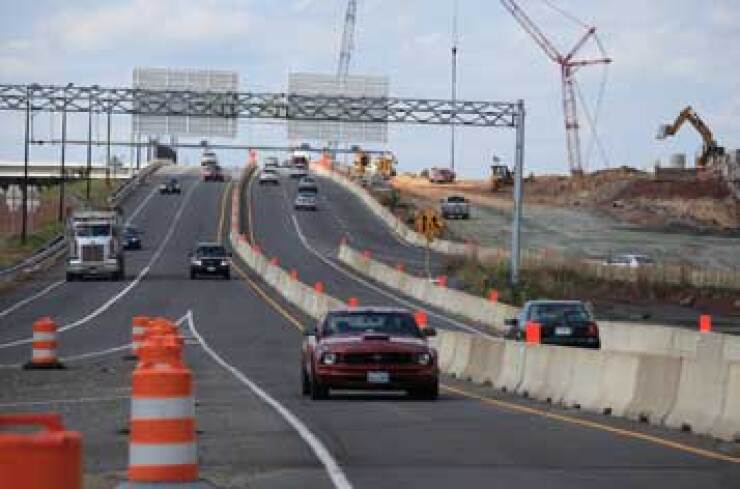
DALLAS - Ramping up repairs to the nation's deteriorating infrastructure would create almost three million jobs and make essential systems more resistant to the coming impacts of climate change, according to a new report from a coalition of labor unions and environmental groups.
Bringing the nation's infrastructure to a B grade from the D-plus given it by the American Society of Civil Engineers in 2013 also would boost the nation's gross domestic product by almost $400 billion, the 15-member BlueGreen Alliance said.
The 22-page infrastructure investment report said conventional financing can cover the $1.6 trillion gap between planned spending and the $3.6 trillion needed to bring transportation and utility infrastructure to a state of good repair over the next 10 years.
Current borrowing costs make this a good time to issue long-term debt for infrastructure projects, the alliance said, noting that the interest rate of just above 3% for 30-year U.S. Treasury notes is close to an all-time low.
"Comparing the interest costs of financing the additional $1.6 trillion necessary to achieve an overall grade of B at today's rates of 3.1%, versus the pre-recession rate of 4.5%, financing the expenditure today would save taxpayers nearly half a trillion dollars over 30 years," the alliance said.
Infrastructure spending as a percentage of gross domestic product is also close to a historic low, the alliance said.
Spending peaked at 2.2% of GDP during the stimulus years of 2009 and 2010, but has since fallen to slightly more than 1.5%.
Alliance members include the Sierra Club, National Wildlife Federation, Natural Resources Defense Council, United Auto Workers, American Federation of Teachers, and United Steelworkers.
Congress should get the infrastructure repair ball rolling by passing a fully funded, multi-year transportation bill during the short post-election session that begins Nov. 12, said Kim Glas, executive director of the BlueGreen Alliance.
"Congress can jumpstart this by passing a transportation bill in the lame duck session this year," Glas said.
Spending on infrastructure upkeep should not be a political issue, said Greg Bible, president of a UAW local in Michigan.
"Our infrastructure is the foundation upon which our country stands," he said. "To make repairing it into a partisan debate is a travesty."
By 2020, the alliance said, a funding shortfall of $756 billion will have accumulated for highway system maintenance, with 37% of that gap needed to address current problems that have been identified but deferred.
ASCE said in its report card last year that 32% of major roads in the U.S. are in poor or mediocre condition and 42% of urban highways are congested.
Less traffic congestion can reduce greenhouse gas emissions and more robust infrastructure is better to withstand future flooding and other natural disasters associated with climate change, the alliance said.
Infrastructure investments that support recent increases in transit system ridership could cut U.S. gasoline consumption by almost 6 billion gallons each year, the report said.
Ill-maintained or inadequate infrastructure inevitably results in more waste and unnecessary pollution, said Peter Lehner, executive director of the Natural Resources Defense Council.
"By acting now, we can end the vicious circle we're in, where outdated and inefficient infrastructure is making climate change worse, and as the climate changes the infrastructure is even more battered by the impacts," Lehner said.
Brian Pallasch, ASCE's managing director of government relations and infrastructure initiatives, said the increased investments in infrastructure proposed in the report would provide economic advantages as well environmental benefits.
"In order to lead in the global economy, America needs to be at the front of the pack when it comes to infrastructure," Pallasch said.





